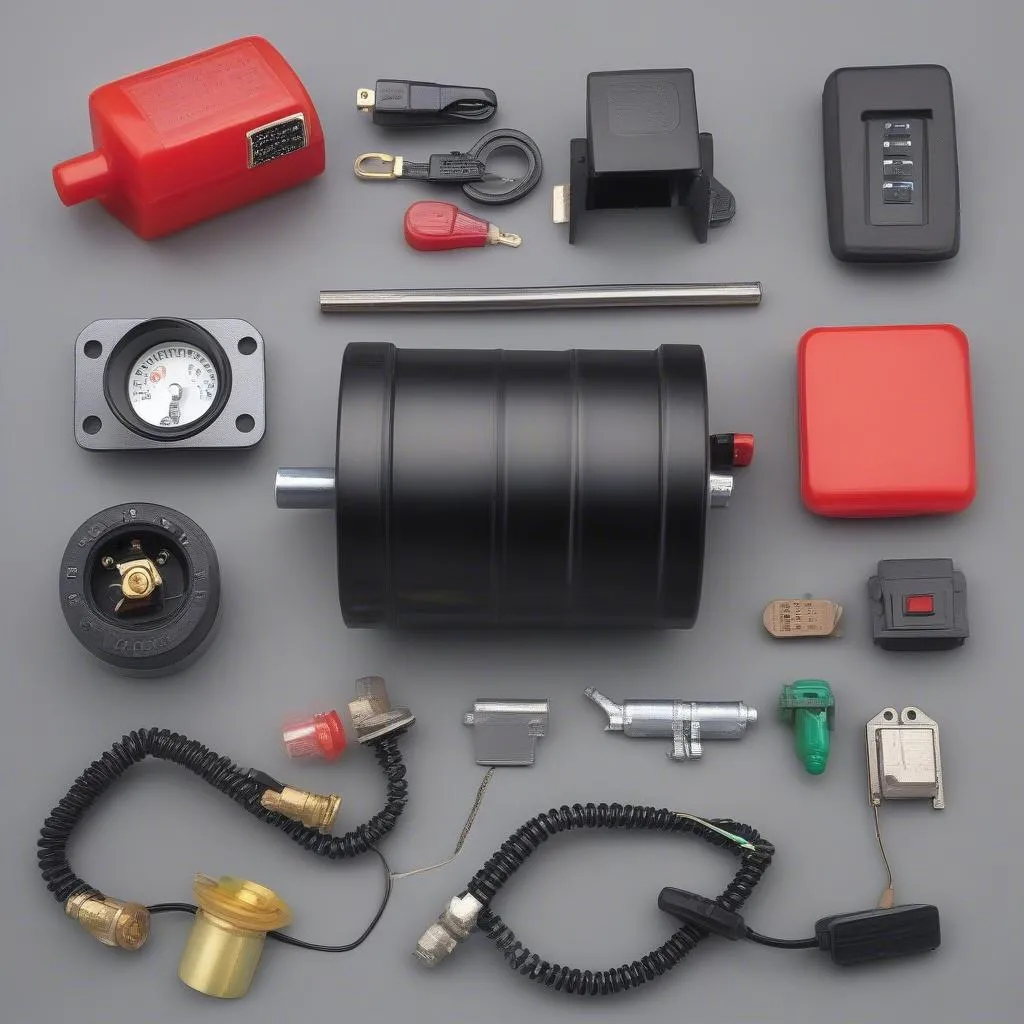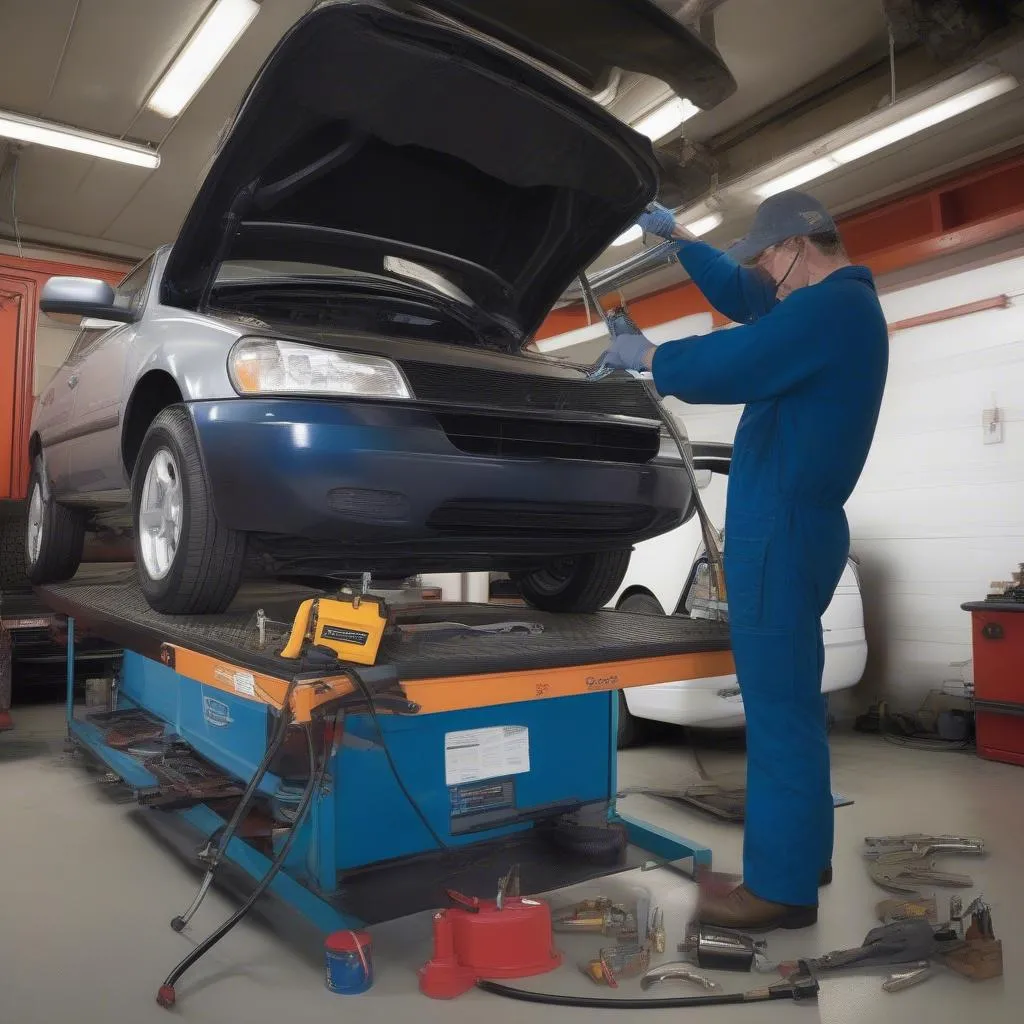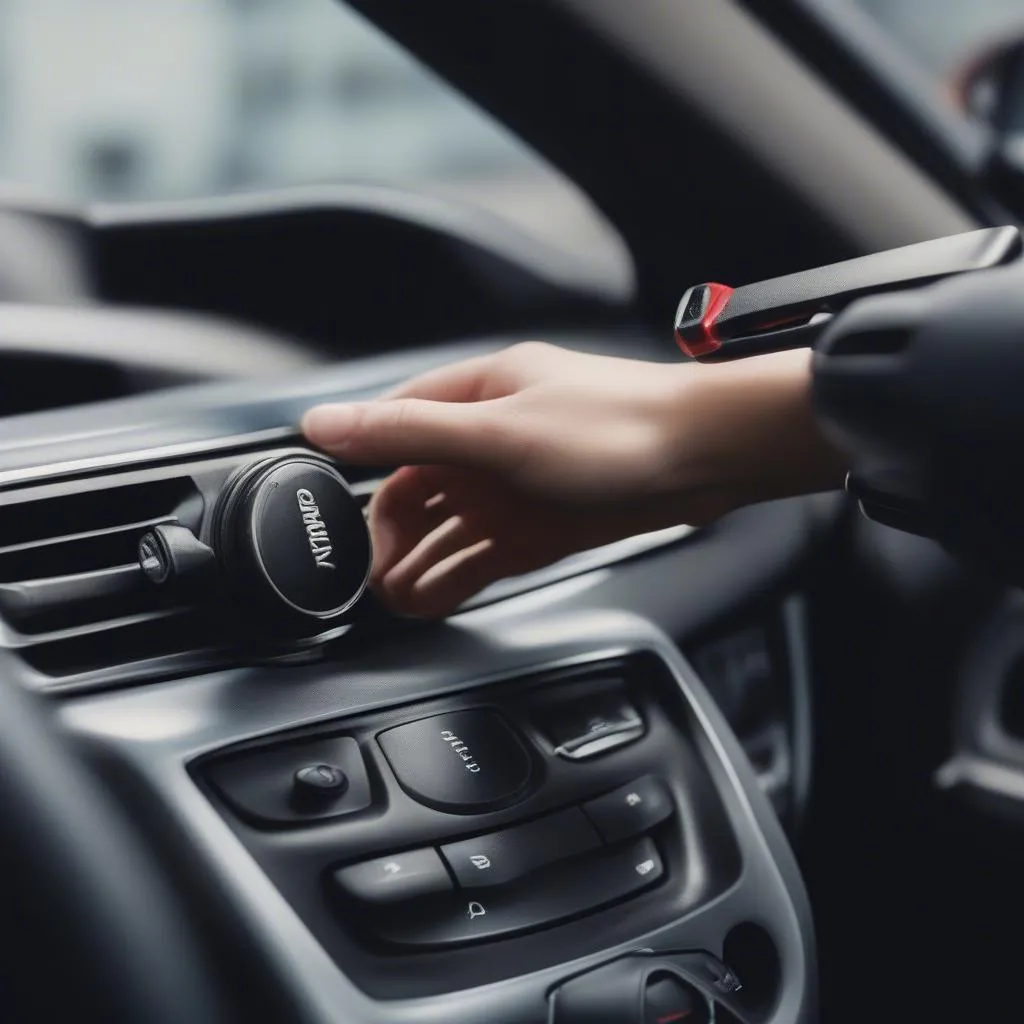Fuel theft is a growing concern for vehicle owners and businesses alike. Whether it’s siphoning fuel directly from the tank or using sophisticated methods to tap into fuel lines, thieves are always finding new ways to steal this valuable resource. But how can you protect yourself and your vehicle? The answer lies in understanding how anti-fuel theft systems work.
Understanding the Basics: How Fuel Theft Occurs
Before we delve into the intricacies of anti-fuel theft systems, it’s crucial to understand how thieves operate. Traditional methods like siphoning are still prevalent, but modern thieves often resort to more sophisticated techniques:
- Drilling into fuel tanks: A quick and surprisingly common method, thieves drill directly into the fuel tank to extract fuel.
- Tampering with fuel lines: By cutting or puncturing fuel lines, thieves can create a bypass to siphon fuel.
- Electronic Exploitation: Some advanced thieves use electronic devices to override fuel pump controls or disable alarms.
The Role of Anti-Fuel Theft Systems
Anti-fuel theft systems act as a deterrent and a barrier against these malicious acts. They are designed to prevent unauthorized access to your vehicle’s fuel system and can be mechanical or electronic in nature. Let’s explore some common types:
1. Locking Fuel Caps
This basic yet effective solution replaces your standard fuel cap with a lockable one, preventing thieves from accessing your fuel tank directly.
2. Fuel Tank Armour
For enhanced protection, consider fuel tank armor. These robust plates, typically made of steel or aluminum, are installed around the fuel tank, making drilling or puncturing extremely difficult.
3. Fuel Cut-Off Switches
These switches interrupt the flow of fuel to the engine. When activated, they effectively starve the engine of fuel, making it impossible for the vehicle to start or run, even if a thief manages to bypass the ignition.
4. Advanced Alarm Systems
Modern car alarm systems often integrate fuel theft detection. These systems use sensors to detect vibrations, changes in vehicle angle (indicating jacking), or sudden drops in fuel level, triggering an alarm to scare off potential thieves.
 Anti-Fuel Theft Devices
Anti-Fuel Theft Devices
Diagnosing and Addressing Fuel Theft Issues
Suspecting fuel theft can be stressful, but there are ways to diagnose and address the issue:
1. Identifying Potential Fuel Theft
- Sudden decrease in fuel level: An unexpectedly empty or significantly lower fuel gauge reading can signal theft.
- Fuel odor: A strong smell of gasoline around your vehicle, especially if not typical, could indicate a leak due to tampering.
- Visible damage: Inspect your vehicle, particularly around the fuel tank and fuel lines, for signs of drilling, punctures, or tool marks.
2. Tools for Diagnosis and Repair
- Diagnostic Scanner: A professional-grade diagnostic scanner, like those offered by CARDIAGTECH, can read your vehicle’s fault codes, revealing potential issues with the fuel system, alarm system, or other related components.
- Inspection Tools: A mechanic will use specialized tools to inspect the fuel tank, fuel lines, and related components for damage or tampering.
3. Repair and Prevention
- Repairing Damage: Any damage to the fuel system must be repaired immediately by a qualified mechanic. This may involve replacing fuel lines, sealing punctures, or even replacing the entire fuel tank.
- Enhancing Security: After addressing the immediate issue, consider installing additional anti-fuel theft measures to deter future attempts.
 Car Mechanic Inspecting Fuel System
Car Mechanic Inspecting Fuel System
FAQs About Anti-Fuel Theft Systems
Q: Are locking fuel caps effective against all thieves?
A: While locking fuel caps deter opportunistic thieves, determined individuals might resort to drilling or other methods to bypass them.
Q: Can I install anti-fuel theft systems myself?
A: While some solutions like locking fuel caps are simple to install, it’s generally recommended to have a qualified mechanic install more complex systems to ensure proper functionality and avoid potential damage to your vehicle’s fuel system.
Q: How can I choose the right anti-fuel theft system for my vehicle?
A: The best system depends on your vehicle type, security needs, and budget. Consult with a trusted mechanic or security professional to assess your specific requirements.
“Remember,” states automotive security expert Dr. Emily Carter in her book Protecting Your Automotive Assets, “a multi-layered approach to vehicle security, including both physical deterrents and advanced electronic systems, offers the most robust protection against theft.”

